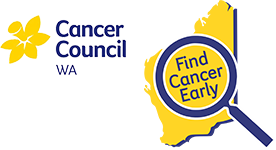Regional cancer unfair.
The most commonly diagnosed cancers in the Goldfields are prostate, breast, bowel, lung and skin.
This article was written by Joanna Delalane and published in the Kalgoorlie Miner on 15 June 2018.
The growing divide in the availability of cancer treatments between Perth and Kalgoorlie-Boulder means more people in Kalgoorlie and other regional areas are dying of the disease than should be, a medical expert says.
Nuclear medical practitioner and Kalgoorlie Medical Imaging director Peter Tually said the availability and type of cancer therapies had improved markedly in recent years, but these breakthroughs were often restricted to the metropolitan sector.
He said this phenomenon had widened the gap between Perth and places like Kalgoorlie-Boulder, and he feared things would get worse as technology advanced.
“For example, there is a new therapy for prostate cancer, which is one of the highest causes of cancer deaths and the highest among men,” he said.
“People in the regions don’t have ready access to this sort of treatment.
“Between 2000 and 2018, access to face-to-face specialists has gotten worse in Kalgoorlie-Boulder.
“Oncologists only come here every three to four weeks, and the waiting list is very long.
“While all these huge advancements are happening in Perth, people 600km away are having to rely on 15-year-old technology such as the 16-slice CT scanner still sitting at Kalgoorlie Hospital.
“It’s outdated — it’s not contemporary.”
Dr Tually said it was widely known and widely researched that cancer patients in regional areas had higher mortality rates than those in the city. “Based on data, 50 per cent of people who get a prostate cancer diagnosis in a regional area like Kalgoorlie will be dead within five years,” he said.
“For people who are poor, the ability to access what people in Perth have access to is going to get harder.”
But he said this divide should not be getting harder — in fact, it shouldn’t be there at all.
“Geography is the silent killer, and it shouldn’t really be that way because we’ve got equipment and technology at our disposal,” he said.
“We’ve got to maximise their use, take the politics out of it.
“The tyranny of distance shouldn’t be a problem anymore.”
According to statistics from the Cancer Council, cases of and deaths from the disease across the Goldfields increased during the decade from 2004-2014. However, this was mainly attributable to a growing and ageing population.
Cancer Council Goldfields regional education officer Rachel Jolly said people in regional WA were 20-30 per cent more likely to die within five years of a cancer diagnosis than those in Perth.
“The most commonly diagnosed cancers in the Goldfields are prostate, breast, bowel, lung and skin,” she said.
“To help address this, Cancer Council WA’s Find Cancer Early campaign aims to increase awareness of the early signs and symptoms of bowel, lung, prostate, breast and skin cancer in people over 40 in regional WA, and break down some of the barriers and myths to seeking help.”
Visit the Kalgoorlie Miner website
Photo credit: Spencer Pugh
